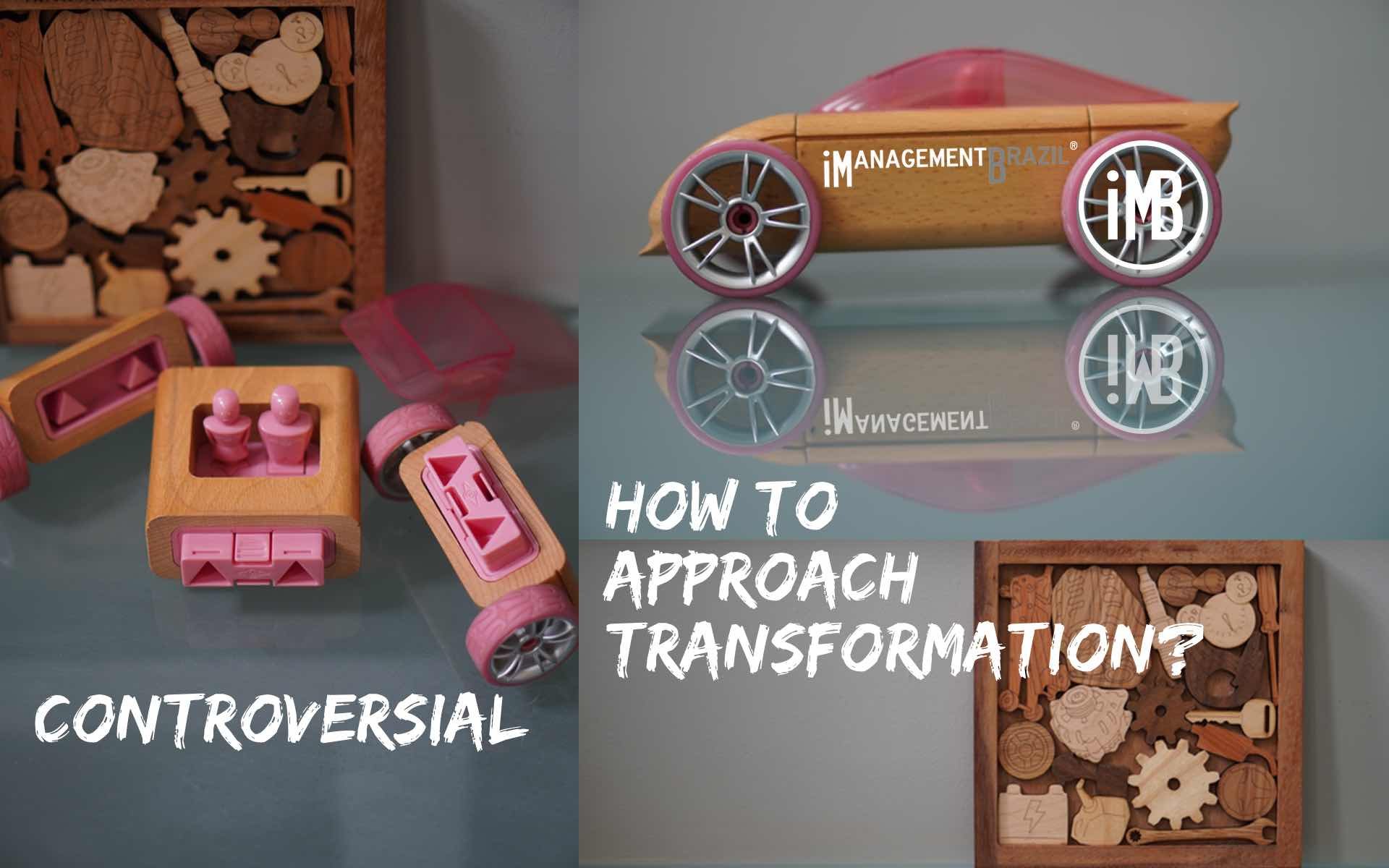Controversial: how to approach transformation?
Pretext
If you follow the blog posts of iManagementBrazil on the various platforms and our own webpage, you will notice that we very often use and propagate the approach of the so-called Lean Startup.
Lean Startup belongs to the agile management methods. The approach is very often used by strategic investors in the startup scene. Since 2016, we have worked in five projects with startup companies; all of them were in the advanced seed stage. In all cases, our clients were the strategic investors of the Brazilian startups. Even though the companies were in an advanced seed stage, they were still operating under noticeably increased uncertainty.
We quickly realized that the Lean Startup approach can also be used very well in projects outside of startups. This is especially true in cases of business model transformation.
Understand Lean Startup
The five basic principles of Lean Startup are entrepreneurship, professionalized management, validated learning during the course of the project for all participants, frequent feedback loops and stringent project controlling. Especially during the transformation of the business model, an increased number of so-called low-fi models must be tested in the market at a high rate of impact. Here one should always proceed according to the premise of Steve Blank, who said that no business plan survives the first contact with the customer; one must get out of the office and talk to the customers and test models.
Thus, the Lean Startup approach is a stringently structured approach. Mile stones are defined and project progress is measured and documented at regular intervals. In order to structure the new business model to be constructed well visually, the widely known so-called Business Model Canvas (BMC) is used.
In most cases, transformational projects always involve a migration to a digital model or a massive use of automation technology. The questions always revolve around the so-called digital artifacts (hardware and/or software), digital infrastructure (internal, rollout to suppliers) and a digital platform (closed, open).
Lean Startup in practice
This environment can be found again and again in all industrial sectors, whether in B2B or B2C applications. As two emblematic examples, you can access the following two links:
1. Digitzation helps oil and gas plant manufacturer boost productivity by 30% (B2B)
Link Blog Post
2. Transformation of client relationship & migration to digital business models - Business Development Coffee Shop Franchise (B2C)
Link Blog Post
And the discussion grows and grows ... .
In the last months, an interesting discussion around the Lean Startup approach has been established in our chat ecosystem, also especially via LinkedIn, Twitter and the German social media Xing, which should be made accessible to a broader audience with this contribution. Also, we hope that the contribution can lead to an intense discussion and exchange of experiences.
The discussions moderated by iManagementBrazil on various platforms revolve around possible critical points and challenges in the application of the Lean Startup approach.
What is the startup founder thinking?
For example, founders of Brazilian startups often argue that the approach is too structured and cannot lead to radical innovation. This means that the interests of the founders do not necessarily coincide with those of the investors. This expresses the natural tension between founders and investors. The Lean Startup approach tends to favor the investors' point of view.
What about the traditional companies?
Traditional companies in a transformation process sometimes argue that the Lean Startup approach can be misleading because too much focus and time is spent on customer feedback from the LowFi model. This expresses the old reflex that in the past people mostly spent a lot of time and detail on tactical planning of resource allocation in Excel sheets and then called it strategic planning.
Also, traditional companies sometimes criticize that there would be too much focus on the documentation and integrated planning of the Business Model Canvas. Traditional clients, especially from the B2B sector, regularly talk about how the focus should be on developing a "valuable hypothesis" after all.
Transformation can and must be controversial.
What is meant by this in essence?
The most economic/favorable supplier throughout the entire value chain. This can be observed especially with clients from the German-speaking region. In contrast, the BMC tries to find a robust model in the value chain.
Finally, leaving aside the startup sector, we can clearly observe that transformation projects, regardless of whether they are in the B2B or B2C segment, tend toward incremental innovations and carry forward the more or less existing culture of continuous improvement. This is a good thing and creates confidence among all those involved. Even though migrating to a digital model can be a disruptive process, that doesn't have to mean turning everyone upside down in a revolutionary way.
Quite the opposite!
With the Lean Startup approach in traditional companies, robust project controlling is taken into the baggage and sound learning is mapped in the organization.
What is your experience?
answer & discussion: info@imb.solutions or fneuhaus@imb.solutions

